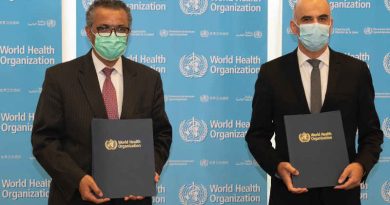WHO Assigns New Labels to Covid Virus Variants: Alpha, Beta, Delta, Kappa

WHO explained that the new Greek alphabet names won’t replace the variants’ existing scientific names.
The World Health Organization (WHO) has assigned new simple labels to key variants of SARS-CoV-2, the virus that causes Covid-19, using letters of the Greek alphabet.
For example, the B.1.1.7 variant of concern initially identified in the United Kingdom, will be labeled now as “Alpha”. The one identified in South Africa will be “Beta”.
Two Covid-19 variants first found in India have now been christened “Delta” and “Kappa”. It is believed that Delta, scientifically named B.1.617 or the “double mutant” variant, is more infectious and responsible for the ongoing surge in infections in India.
Kappa, scientifically known as the B.1.617.1 variant, was found earlier in India while little is known about the impact of these variants and their response to vaccines.
According to WHO, the labels were chosen after wide consultation and a review of many potential naming systems. The UN health agency convened an expert group of partners from around the world to do so. They included experts who are part of existing naming systems, nomenclature and virus taxonomic experts, researchers, and national authorities.
Today WHO has announced a new naming system for key #COVID19 variants. The labels are based on the Greek alphabet (i.e. Alpha, Beta, Gamma, etc), making them simple, easy to say and remember.
👉 https://t.co/aYCZfspZyb pic.twitter.com/Gxt14fwVqF
— World Health Organization (WHO) (@WHO) May 31, 2021
WHO explained that the new Greek alphabet names won’t replace the variants’ existing scientific names, which convey important scientific information and will continue to be used in research.
“While they have their advantages, these scientific names can be difficult to say and recall, and are prone to misreporting. As a result, people often resort to calling variants by the places where they are detected, which is stigmatizing and discriminatory. To avoid this and to simplify public communications, WHO encourages national authorities, media outlets, and others to adopt these new labels,” the agency urged.





